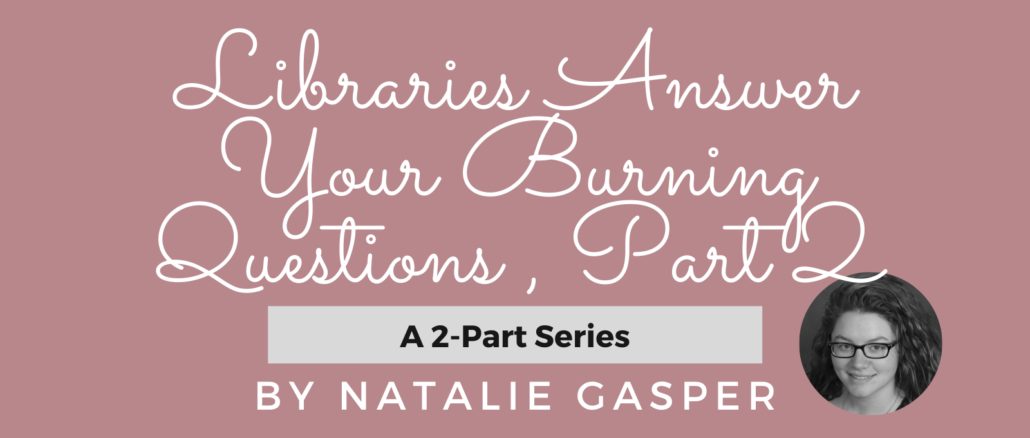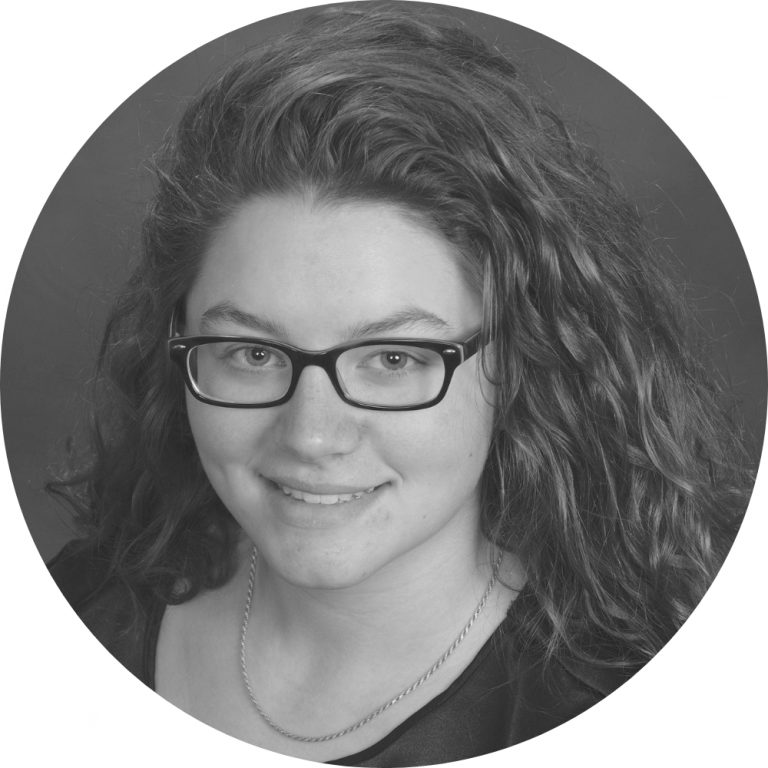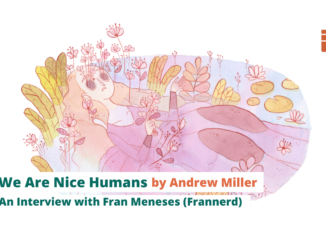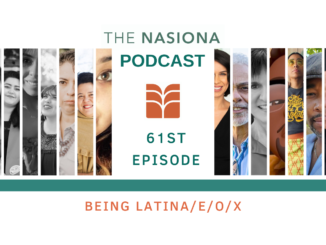
In this 2-part series, we asked libraries across the United States to answer some of your burning questions. In Part 2, we asked them:
- How can authors collaborate with you to spread the word about their book to potential readers? Are you open to circulating self and small-published books by local authors?
- If you can’t buy the book, do you accept donations?
(Read Part 1 here.)
How can authors collaborate with you to spread the word about their book to potential readers?
California: Alameda
Like many libraries, we have hosted authors on-site. One of our libraries has for several years hosted local author book fairs, allowing the authors to promote and discuss their books directly with the public. Another of our libraries has hosted brown bag lunch events featuring local authors and poets discussing and reading from their books. Library staff can create special reading lists in the public-facing catalog to promote materials, including books by local authors.
We subscribe to a digital platform called Biblioboard that allows local authors to post their self-published ebooks for check out by Library members. Their books may then be vetted and reviewed with Biblioboard’s editorial partner, Library Journal, for possible wider national exposure. We also have a young writer’s program in partnership with a number of local schools, which allows books by children to be printed and placed in the library’s collections.
Arizona: Scottsdale
Authors can absolutely collaborate with us to spread the word about their books. Usually we have a local author book sale in February when Scottsdale is filled to capacity with snowbird part time residents and tourists. We also set up programs which give authors a chance to talk about their books. This year, we are offering local authors a chance to send us video promos that we will run on our social media and use as part of a virtual program series on our YouTube channel.
New Mexico: Santa Fe
Santa Fe Public Library, during non-Covid times, has meeting rooms available. All that is required is name and information and signing the meeting room agreement. That being said, it is primarily on the author to market their event. We have recently acquired a marketing tool that is helping us promote author events and talks. Of course these are all virtual right now but we will continue to use this in the future when we are able to have patrons in the building. We also try to advertise events through our social media accounts so if authors are active on any of the main socials (Facebook, Twitter, Instagram), we can always tag or share events that way.
Florida: Miami Dade
We have an ongoing program that brings local and national authors to different library branches to present their books, do book readings, have discussions and Q&A sessions and, in some cases, include a craft or other book related activity with participants. The Miami-Dade Public Library System’s Author Series is a great way for authors to interact with readers and aspiring writers and vice-versa.
These events are promoted in many ways, including on social media, on our events calendar, in our e-newsletter, and in the branches, so that helps spread the word about their books to potential readers. These programs are currently being presented virtually via Zoom due to COVID-19 and continue to be very popular. The books being presented are generally already in or added to our collection. Many of the participating authors will also donate copies of their book to the Library.
Indiana: Indianapolis
I work for a large library system, so I would not be working directly with authors. Most large public libraries will have a programming department inside their public services division. That programming team will be responsible for developing programs such as city-wide book reads, author talks, music shows, public speaking events, cooking/crafting demonstrations, etc. In smaller library systems this might be the responsibility of the librarian at the reference desk, or the branch manager. A few minutes spent by an author figuring out the organizational structure of their public library will allow them to identify and connect with the right employee. From there it is a matter of gauging library interest and finding times and dates and program content that everyone finds agreeable.
Maryland: Harford
Most public libraries host author events throughout the year featuring well known authors as well as introducing our communities to new authors. These events may feature a specific book or highlight/celebrate a specific theme or activity. Harford has hosted novelists, NY Times bestselling authors, Chefs and more. With the current worldwide pandemic, our events are virtual and very popular. The best way to collaborate is to reach out to your local library system by emailing either the Marketing Director or Materials Administrator.
Rhode Island: North Kingstown
In the past, we’ve held book-launch programs where authors would come to read from their newest work. Besides the reading itself, further promotion would come in the form of promoting the program, which would of course mention the author and their work. These programs were fairly successful, although we haven’t done one in over a year. Partly this is because there have been fewer authors approaching us about it; partly it’s because if we do it too frequently attendance tends to be low, which does the authors a disservice; and most recently it has been because of restrictions on in-person programming due to covid-19.
New York: Queens
Many authors reach out to us and we to them. We traditionally had author visits in person and thus gave an opportunity for authors to speak directly to our customers. Recently we have moved this forum to a virtual environment which, although less personal, had enabled customers and authors to easily meet up. We have also had authors, mostly young adult authors, do workshops with a group of teens so that there is more than the simple reading and questions experience.
Texas: Austin
Libraries regularly collaborate with authors to create engaging community events, and the Austin Public Library hosts various author events for patrons of all ages and interests. While we actively reach out to authors, we are also regularly approached by published authors who wish to spread the word about their works. This can lead to the library hosting an author talk or other related event.
Wyoming: Carbon
One of the best ways authors and libraries team up to get the word out about a new title is holding an author event at the library. The library gets to count all the attendees as having come to a program, and the author gets to put up publicity about the event and meet some of their readers. Of course, your mileage may vary with in-person events these days, but many libraries have expanded their programs into online space.
Louisiana: Caddo Parrish
Authors can contact us directly about books they have released. It never hurts to let us know about a new book and what it is about. Our libraries will also partner with authors to give programs, such as book readings, signings, meet the author events, etc. Right now our programs are limited because of COVID-19 restrictions, but usually we have a few local author meet-and-greets every month.
Massachusetts: Fall River
We don’t usually work directly with authors, but if there is a book of special local interest, we do. For example, we are currently working with the author of Spindle City, a historical novel set in Fall River. He emailed us and has sent us publicity photos and reviews of his book. He also offered to send us free copies and to do an author reading/discussion online, so we have been promoting that event.
http://www.eventkeeper.com/code/friend.cfm?curOrg=FRPL&tEvt=6552422&tfPopup=1
This, as I said, is not typical, but works because the book has a clear local connection and we think it would interest the community.
Pennsylvania: Adams
We offer publicity to authors (both local and well known) when we have a program about their book or a subject that their book contributes to. This takes many forms. All virtual at the moment but can be in-person when the pandemic subsides. We do have a form to fill out on our website (link below) that they can fill out and submit to our adult (or children’s/YA) programming department which gets the ball of programming rolling.
Massachusetts: Boston
We host author programs, our neighborhood branches in particular will host programs with independent authors. We also create many booklists around topics/themes that will be featured and shared on our website and social media platforms, in addition to the front page of our Overdrive page.
Virginia: Arlington
We have a local author collection that accepts works from the community based on the program’s guidelines (link below). We also have had local authors speak at library locations and participate in library programming.
Arlington Public Library invites all authors to submit published work for inclusion in our general circulating collection, via the “Suggest a Title” form. Here is a link to the page:
To be considered for the local Arlington Author Program, authors can mail their book to the Materials & Management division. Criteria for inclusion into the local author collection and the mailing address can be found on the web page above.
Michigan: Ann Arbor
We work with authors to help produce, publish and publicize their work. Please look at aadl.org/FifthAvenuePress and at our YouTube channel aadl.tv for more information and great examples of what we do.
Florida: Orange
We have an active social media presence and authors could tag us on their tweets or posts. They could also fill out our program proposal form to be considered for an event with the library.
Maryland: Carroll
We try to support local authors. We receive mailings from authors from all parts of the country and we look at the information they send us about their books and evaluate whether we feel it would circulate well in our collection.
Georgia: Live Oak
Live Oak Public Libraries (LOPL) is an advocate for independent or local author works. We encourage authors to go to our website and submit a suggested purchase form. Often times we find that independent or local author submissions don’t have bibliographic record in OCLC. OCLC is a global cooperative that supports thousands of libraries in making information more accessible and more useful to people around the world. If no bibliographic record exists, then we will have to perform original cataloging. We determine the following: if their work is relevant to our collection and if so, how many staff hours would be needed to create an original catalog record. Original cataloging can take from one month to 6 months.
Minnesota: Carver
Authors can spread the word by making sure their publishers gets book reviewed if not in professional publication like Library Journal than a local newspaper. We buy mainly by reviews; if not reviewed, good chance we won’t buy it.
New Hampshire: Hudson
We don’t have an established procedure as we generally do not do promotional work for authors. Usually self-published authors contact us through email, phone or walk-in. We’ll consider doing a review. If an author is providing a service such as storytime or a presentation then we generally let them promote their book.
Utah: Salt Lake City
The buyers–in my case, as the non-fiction buyer–aren’t actively involved in the promotion of the materials they buy. However, new books are displayed in the new books area of the library, with the covers facing outward (as space allows.).
Alabama: Gulf Shores
An e-mail is fine and if the author would like to send bookmarks to pass out to patrons (if we buy their book), that’s always nice too.
North Carolina: Catawba
Authors can email mylibrary@catawbacountync.gov to spread the word about their books. They could also send us galley copies or excerpts digitally or in print for review.
Are you open to circulating self and small-published books by local authors? If you can’t buy the book, do you accept donations?
Indiana: Indianapolis
Yes. I just took a phone call as I was writing this email from a local author. There is a somewhat elaborate process in place. If it is an author that we have not previously purchased from, we require that the first copy be donated for review. This donated copy is not returned, and if it is not added we send it over to our book sale and contact the author to let them know why we declined to add their work. Generally, I am not concerned about the authority and accuracy of the material that gets added this way, since it is usually poetry (we class poetry in non-fiction), or autobiographies/memoirs. I am not an English teacher and I will not be grading for grammar, but there are things that are important for me to see:
- Strong binding, no staples, no spiral-bound.
- I would prefer to see the title and author be readable on the spine.
- When I flip through it I want my brain to tell me that I’m holding a book, and not a bunch of stuff that has been copied and pasted from the internet.
Once an author is in it is generally pretty easy for them to get their next book in – a simple email with a greeting and a notice that their next book is available from Amazon, or them directly, usually suffices.
That said, I have rejected a local author’s travel guide on the basis that the content was unattractively presented and poorly edited.
I have two titles that I have rejected that I keep at my desk, and I use them in presentations that I give to other staff in my library system. One is 33 pages with no title on the spine, and the all of the pages have a gray sidebar because the author left “track changes” mode enabled in their word processing software, and felt that this was a valuable addition to the publication. The other makes paranoid claims about the medical industry, and the editing and writing is very difficult to follow. Librarians see all kinds of stuff.
I think that, overall, the message that I would want to communicate to non-fiction authors that want to self-publish and get their work into libraries is to pick their topic carefully. A couple of years ago Rodale Books put out a book on mushroom foraging that was written by a popular Instagram influencer. Due to health concerns over some of the information presented, the book ended up getting recalled (https://www.today.com/food/instagram-star-cookbook-recalled-over-dangerous-ingredients-t135567). If someone is out there wrapping up their self-published cookbook of foraged recipes, I am sorry but I am not interested. For health and legal information in particular I am going to prioritize authoritative and reputable publishers. I can justify adding your memoir or craft book much more easily.
California: Alameda
Self-publishing is a way for community members to present their ideas in print and audio/visual formats without involving professional publishing and editing firms.
We try to follow the same selection criteria for self-published books as we do for other materials. We give preference to local authors who donate copies of their materials.
Because self-published books often require original cataloging, there are additional staff time and costs associated with integrating them into the collection, and it may take longer for them to appear on our shelves.
While my team and I constantly review book reviews for materials, we also take an interest in local authors and may purchase materials from authors, booksellers, and publishers with local ties. The county has a great program that encourages us to buy from local businesses, especially those that are minority and/or woman owned. This allows us access to books by local authors and whose subject matter may be about the local area.
Massachusetts: Fall River
We are open to circulating small press books, although distribution and library purchasing restrictions can make this difficult. (We can’t simply buy a book with a credit card–all purchases must go through a municipal system, so we must be invoiced first and then send payment.) Therefore, donating the book makes it easier to get it into our collection. We are somewhat open to circulating self-published books, although, as I’m sure you know, the quality of these can vary.
We do have a special collection of books by local authors and we have sometimes worked with local authors who wish to do a reading and sell copies of their books. (We don’t pay for these programs, but our Friends of the Library group will sponsor them so the authors can sell their work.) However, unless the author has a local following OR the book is of local interest, these events often have very few attendees–sometimes only the author, a librarian, and the author’s friends.
Sometimes we have events that include local authors. For example, we have hosted comic-cons and invited local graphic novel creators to showcase their works and give drawing lessons. We’ve also had local children’s authors be guest readers at our weekly preschool storytimes. Obviously, Covid has restricted these activities.
In my other life, I am a fiction writer, and I have presented library programs. I’ve found that the most successful ones are participatory. I specialize in flash fiction (very short stories), and I’ve led writing workshops in this genre for both teens and adults. I also worked with a local library in Rhode Island to coordinate a veterans’ writing group, and I’ve taken part in some successful open mic programs–for example, during National Poetry Month.
Utah: Salt Lake City
I’m open to buying self-published books by any authors, local or otherwise. I treat them with the same criteria as books from larger, traditional presses. It’s always best if the author can provide examples of positive reviews, media coverage, a press kit (if one exists), and a brief statement about the need the book will fill in the library’s collection. Donations are always welcome, but accepting a donation is not a guarantee that the book will circulate in the library. In the event that it doesn’t meet the typical selection criteria outlined above, a donations goes to the library’s bi-annual book sale.
Massachusetts: Boston
We are open to buying small published books, particularly as some genres move to having more independent and self-published authors that promote their titles and connect with readers though social media. In the past we have accepted donations, but due to COVID19 we are not, due to less staff in the building to receive and process donations. All of our ebooks are hosted by a vendor, Overdrive, and we have never been able to accept the donation of digital materials, though Overdrive has expanded relationships with many companies that help independent authors publish ebooks over the last several years.
New Mexico: Santa Fe
We are open to circulating self and small-published books by local authors but they must still adhere to our Collection Development Policy. Material wise, the physical book needs to be sturdy enough to stand up to multiple circulations. The content and writing should be timely and well done. It’s best if it has positive reviews from a national review journal or a local source such as a newspaper or radio show. It will be held to the same standards of circulation as any other title though we do try to be a little more lenient with local topics and authors.
If we can’t buy the book, we will take donations but, again, it will be reviewed for consideration. It will not be automatically added. If we choose not to add, the donated items would be given to our Friends of the Library and made available for sale through their stores or events.
Louisiana: Caddo Parrish
Yes, we are open to circulating self and small-published books by local authors. We are usually only able to purchase these types of books if there is a local tie to our area. If we are unable to purchase a book, we do accept donations. We usually recommend that smaller authors try to be able to sell their books through our larger vendors (Baker & Taylor, Ingram, etc.). That makes it easier for library systems to be able to purchase the materials.
Maryland: Harford
Harford has a local author collection that was created specifically to support our local authors. These books are available for our customers to borrow. Harford has a Materials Selection Policy that is available on the library website that provides guidelines for purchasing materials. In addition, we occasionally accept book donations and the books must meet the Materials Selection Policy in order to be added to the collection.
Wyoming: Carbon
We are open to circulating self-published and small-publisher titles. The issue there is usually not getting the books themselves, but finding bibliographic records of them so that we can actually put the items in our collection. Self and small published books are often lacking in that kind of a bibliographic record, which makes them hugely time-consuming to add to our catalog compared to a book from a major publisher. They also tend to be poorly bound and do not hold up well to the kind of multiple uses a public library demands.
Minnesota: Carver
We have a local author collection for authors who live within Carver County. If a person in the twin cities writes a book about a local subject, it will likely be reviewed, thus we’ll know about it and buy it. Sometimes, but rarely, local authors will send us ARCs of their books. We’re a popular library model meaning we purchase mainly based on documented or perceived demand, and rarely do local or privately published authors meet the standard.
Pennsylvania: Adams
We do purchase local books, especially specific to Gettysburg/Civil War as that is our claim to fame but I must mention that these items are bought through Ingram so they must be available on there. I will say that local authors do usually donate a copy but the copy is subject to our normal donation policies for adding it to the collection. Books are reviewed before hosting programming as well with local authors.
Florida: Miami Dade
The Library does not purchase books from individuals. Most of our purchases are made through major book distributors such as Baker & Taylor and Brodart. In addition to providing the actual books, these vendors also provide cataloging and processing services that enable us to get materials into the hands of our patrons much more quickly and efficiently than we have the staffing capacity to handle on our own. We do accept donations, which are then reviewed and added to the collection if appropriate. And, as mentioned earlier, many of the local authors who do presentations at our libraries will often donate copies of their books to the Library.
Rhode Island: North Kingstown
We are very open to circulating small-published books by local authors. Because of the size of our budget, we can’t usually buy such books, but we are always willing to accept donations to add to the collection. For example, one of our more popular books recently has been Little Voices by Vanessa Lillie, who is based in Providence.
Texas: Austin
We are definitely open to circulating items by local authors that meet the criteria set forth in our Collection Development Policy. The Austin Public Library appreciates the thoughtfulness of its customers who donate a variety of print and media materials to the Library. Gift materials are accepted with the understanding that ownership passes to the Library. The Library reserves the right to transfer items to the Library’s bookstore, Recycled Reads, or other suitable agency, and to discard or recycle materials as necessary. Monies accrued from the sale of items not placed in the collection directly benefit the Library.
New York: Queens
Yes, we have always been welcoming of small publishing houses and local authors. We do receive donations all the time from authors for us to evaluate their books to see if it meets our Collection Development policy and are willing to buy multiple titles to meet demand borough-wide or for selected neighborhoods.
Florida: Orange
We have purchased self and small-published books that meet our professional review requirements. We also have a local author circulating collection that includes titles written by local authors that do not have professional reviews and were donated to the library.
North Carolina: Catawba
Our collection development policy states “Evaluation criteria used to add and remove materials from the collection include: public demand; professional reviews; reputation of author or publisher; current or long-term significance; accuracy and timeliness; relationship to existing collection; price, format, condition, and availability.” If it is determined that the self or small published book by a local author met our requirements then we would consider it and we would accept donations.
Arizona: Scottsdale
We have a prominently featured local author collection on display in each of our branches, with all materials freely circulating from branch to branch. We do accept– actually encourage– local authors to donate their books so that we can add them to our collection.
Georgia: Live Oak
Yes, LOPL is open to circulating self and small-published books. However, we will have to weigh the cost of staff time needed to create an original bibliographic record if one doesn’t exist. If we can’t add titles (purchased or donated) to our catalog, another option would be to display the books at one of our largest locations and advertise that on our website.
New Hampshire: Hudson
We are open to self-published books though we make sure there is a place in our collection for it whether we buy it or it’s a donation. We try to make it clear to the patron that we will evaluate the book, but we’re not obligated to add it to our collection. A significant number of self-published materials are unfortunately of low quality and contain mistakes.
Virginia: Arlington
Yes, for local authors with self-published books and small publishers, the books need to match the criteria laid out in our local author policy, but we are definitely open to adding them to our local author collection.
We do not accept donations for the general collection, as all donations to the library go to our Friends group. The Friends of the Arlington Public Library accept book donations for their book sale. Proceeds from the book sale help support the Library’s programming and collections.
Maryland: Carroll
We have a procedure regarding local authors. You can find that information on our website at https://library.carr.org/collections/authors.asp
Because we receive many requests from local authors to add their titles to our collection, we ask them to donate a copy of their book and if the title circulates well, we will consider buying extra copies.
Alabama: Gulf Shores
Yes, I’m open to it. I occasionally buy things that are from local authors and yes, we would take a donation if the author wanted to send one.
Michigan: Ann Arbor
Fifth Avenue Press is our effort to help authors self-publish, and we do accept donations.
INTERVIEWER
Natalie Gasper is an internationally performed poet whose work has appeared in The Write Launch, The Hickory Stump, Sheila-Na-Gig, Noon by Arachne Press, and ellipsis…literature & art, amongst others. She works as an interviewer for The Nasiona and is a developmental editor for Envie, a Magazine for the Literary Curious.




3 Trackbacks / Pingbacks
Comments are closed.